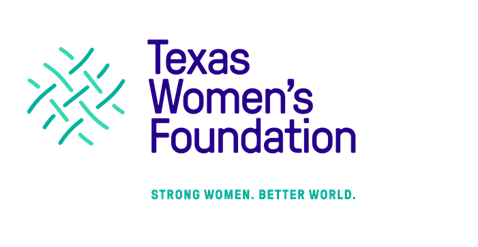According to a study released today by Texas Women’s Foundation, Texas women rank last in the nation for health insurance, earn less, owe more in student debt and have greater housing instability.
Dallas, TX. – September 22, 2022 –
A new study released today by Texas Women’s Foundation examines the impact of Covid-19 on women in Texas. Many of Texas’ 14.6 million women and girls face significant challenges when it comes to four key pillars of financial security—education, childcare, health insurance and housing. The report incorporates the impact of the COVID-19 pandemic and related economic downturn according to Texas Women’s Foundation’s fourth edition of Economic Issues for Women in Texas 2022.
“Texas women face enormous economic barriers such as pay inequity, college loan debt, affordable childcare, lack of health insurance and housing cost burdens.” Said Miki Woodard, president and CEO of Texas Women’s Foundation.
“Women of color and single mothers are even more greatly impacted by these economic hurdles. Texas needs policies in place to ensure the state is a more equitable place for all Texans. Texas Women’s Foundation will be working hard to support all women facing these challenges but we cannot do this alone. We encourage all businesses to review the report and implement solutions that support women and their families to build a stronger Texas for all.” She added.
In addition to the key pillars of financial security, the report outlines new divides related to pay, digital access, cost of caregiving, remaining in the workforce and eviction. With women of color comprising 59 percent of Texas women, the study also examines the economic status of Texas women through a lens of gender, race and ethnicity, and identifies opportunities for change and policy recommendations.
The study, which was first released in 2014, is produced by Texas Women’s Foundation based on research conducted by Every Texan (formerly Center for Public Policy Priorities). Sources include U.S. Census Bureau data, federal and state agency data, studies by policy organizations and academic research.
KEY FINDINGS:
Texas Demographics:
- From the 2020 report, a typical Texas woman is:
- a Millennial (age 36)
- a woman of color
- living in a city
- earning $35,000/year or less
- working to support her family
Women are the face of poverty:
- About 15 percent of Texas women and girls, or 2.1 million, experienced poverty in 2019, compared to 12 percent of Texas men and boys. For a family of three, that equates to an annual income of less than $23,000.
Pay:
- Over 60 percent of Texas women were in households that had difficulty paying for their usual household expenses during the pandemic.
- In 2021, one out of four women in Texas were in households that did not have their regular source of income from before the pandemic.
Caregivers:
- In the U.S, six out of 10 unpaid family caregivers are women who provided $470 billion worth of care.
Education:
- Highly educated but underpaid: 5 times as many women as men completed public college in 2021, but Texas women continue to often earn less.
- Student debt crisis: Women hold most of the outstanding student debt with a debt-to-income ratio 13 percentage points higher than men. A loan forgiveness of $30,000 can help eliminate student debt burden.
- Women of color: Black women and Latinas are closing the educational gap. Asian women and Latinas are now the fastest growing groups among women enrolling in and completing Texas public college educations.
- Effects of the pandemic: Over three in five Texas women were in households where someone’s post-secondary education plans changed due to the pandemic.
Child Care:
- Child care is a critical work support:2 million Texas mothers work and need some form of child care.
- Unaffordable for low wage workers: For a Texas woman making the median income, full-time infant care takes up 21 percent of earnings.
- The pandemic impacted child care availability: About a third of Texas women were in households where children under the age of five had disrupted child care due to closures, availability, affordability or safety.
- From the 2020 report, full-time infant care is nearly as expensive as college—more than $8,000 annually.
Health Insurance:
- Higher amount uninsured: Texas women are twice as likely to be uninsured as women in the rest of the nation, with over 1 in 5 uninsured working-age women across the state.
- Texas needs Medicaid expansion: 406,000 Texas women are below the poverty line and lack affordable coverage options.
- Women of color are the least likely to have health insurance, with over 1 in 4 Hispanic women uninsured, as compared to 1 in 10 white women.
Housing:
- Texas women who rent are more likely to face housing instability than women in owner-occupied housing.
- Housing burden: 20% of Texas homeowners and 45% of Texas renters are housing cost burdened.
- Evictions: Now that the federal moratorium has ended, evictions in Dallas, Fort Worth and Houston have increased to almost pre-pandemic levels.
- Texans of color and Texas families up to $75,000 annual income are less likely to have access to digital devices and internet.
About Texas Women’s Foundation:
Texas Women’s Foundation www.txwf.org is Transforming Texas for Women and Girls, empowering them to build stronger, more equitable communities. One of the world’s largest women’s foundations, the Foundation raises funding from a broad base of donors, including individuals, foundations and corporations. These resources support more than $7.1 million in investments that advance economic security and leadership for Texas women and girls through groundbreaking research, advocacy, grants and programs.

